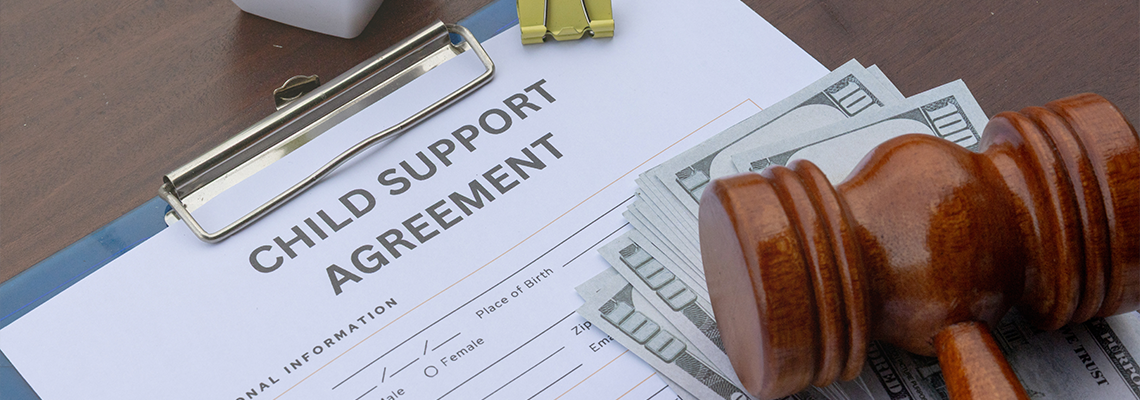
Failure to meet financial obligations, such as child or spousal support, can result in serious legal consequences and emotional strain for all parties involved. Unresolved support payments can snowball into more serious issues, from wage garnishments to jail time.
If you're facing these challenges, you need trusted legal assistance to protect your interests, rights, and future. A knowledgeable attorney can help you understand your rights under Colorado law, represent your best interests, and help mitigate consequences.
Founded by attorney Annie Le Fleur, Le Fleur Law LLC is a highly regarded family law firm serving Colorado communities, including Grand Junction, Mesa County, Delta County, and Montrose County. Attorney Annie Le Fleur combines years of courtroom experience with an empathetic approach to her clients’ needs.
Known for her zealous advocacy and dedication to achieving the best outcomes, she offers a client-centered practice built on trust and compassion. Her firm provides tailored legal guidance to deal with the consequences of unpaid support.
The Consequences of Failing to Pay Support
Failing to fulfill support obligations often arises from a range of life challenges, such as financial difficulties or misinterpretations of court-ordered terms. However, non-payment can lead to severe consequences, such as:
1. Legal Penalties
Colorado courts place significant importance on enforcing support obligations. When payments are missed, custodial parents have the right to file legal complaints to resolve the matter. Failure to comply with court-ordered payments can result in serious consequences, including fines, suspension of your driver’s license, or even jail time. Persistent non-payment may be treated as contempt of court, a measure intended to enforce compliance with support orders.
2. Financial Repercussions
Unpaid support accumulates over time, resulting in arrears, interest, and penalties for the responsible party. Colorado law permits wage garnishments and tax refund intercepts to recover outstanding amounts. These measures can have significant long-term effects on a non-compliant party’s financial standing.
3. Credit and Employment Complications
Non-payment reports can negatively affect your credit score, limiting future borrowing opportunities. Additionally, employers are often notified when wage garnishments are implemented, which can lead to awkward situations in professional settings.
4. Impact on Custody Rights
While custody and support are often treated separately under Colorado law, ongoing failure to meet financial obligations could negatively influence future court decisions regarding custody or visitation rights.
5. Stress and Strained Relationships
Unpaid child support places a heavy emotional and financial burden on families. It impacts not only the children and custodial parents but also extended family members, all of whom can feel the strain of this unmet responsibility. The resulting fallout affects both their well-being and stability, creating challenges that ripple through their lives
Colorado Laws Governing Support Obligations
Colorado has strict rules in place to enforce the payment of child and spousal support. Understanding these legal guidelines can help you comply with your obligations or take steps to recover unpaid support.
Guidelines for Child Support
Child support amounts in Colorado are determined using state-specific guidelines that consider factors such as the parents’ incomes, the child’s needs, and the number of children shared between them. The Colorado Child Support Enforcement (CSE) Program is responsible for enforcing payments. If an individual falls behind, the CSE may pursue enforcement actions, which could include garnishments, liens, or intercepting lottery winnings.
Statute of Limitations
It’s important to know that unpaid child support doesn’t just disappear. Colorado law does not have a statute of limitations for collecting overdue child support, meaning enforcement actions can continue indefinitely until payment is fulfilled.
Contempt of Court
Colorado courts can issue contempt of court charges for failure to pay. This involves presenting evidence of willful failure to comply with support orders. Penalties under contempt rulings may include fines, wage garnishment, and imprisonment. However, courts often attempt to seek solutions that ultimately facilitate payment rather than solely punishing non-compliance.
Spousal Maintenance Payments
Like child support, spousal maintenance (formerly known as alimony) is a court-ordered financial obligation. If payments are not made, remedies such as garnishment can be applied. Unlike child support, spousal maintenance does have a statute of limitations when arrears are involved, so custodial parties must act promptly to enforce orders.
Taking Action
If significant financial changes make it challenging to meet support payment obligations, it’s critical to act promptly. In Colorado, courts allow modifications under certain circumstances, such as job loss or unexpected medical expenses. However, these changes must be formally requested and approved through the legal system.
For those impacted by unpaid support, legal options are also available to enforce court orders. In addition to formal measures like wage garnishments, attorneys can advocate on behalf of their clients or pursue further legal avenues when necessary.
Family Law Attorney in Grand Junction, Colorado
Le Fleur Law LLC distinguishes itself through passionate advocacy and dedication to its Colorado clients. Led by Attorney Annie Le Fleur, who brings extensive courtroom experience, the firm delivers skilled, results-driven representation grounded in compassion and a commitment to excellence. She offers steadfast legal support, empowering clients in Grand Junction, Mesa County, Delta County, and Montrose County to move forward with clarity and confidence.



